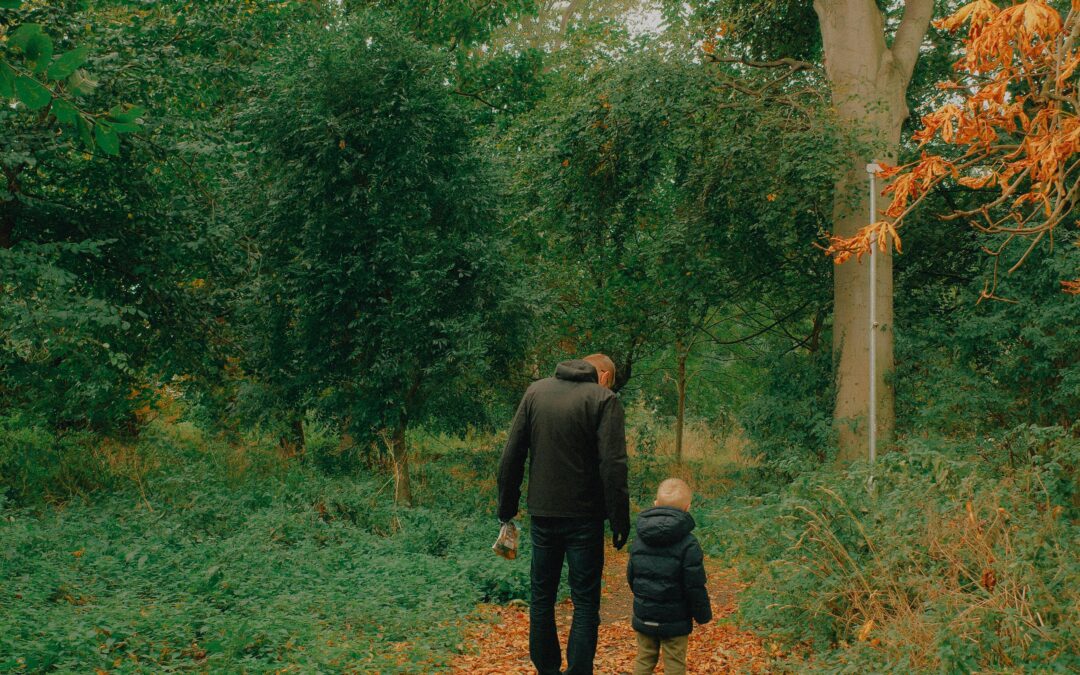What does being a father truly mean in today’s world?
Fatherhood is often depicted through various lenses: the nurturing caregiver, the provider, the mentor, and sometimes, the silent observer. This intricate tapestry of roles encapsulates the essence of fatherhood—the silent strength that many fathers embody. Understanding this strength is crucial in recognizing the profound impact fathers have on their children, families, and society at large.

This image is property of images.pexels.com.
The Role of Fathers in Modern Society
In the contemporary landscape, fatherhood has evolved dramatically. Traditional roles have shifted, leading to a more nuanced understanding of what it means to be a dad. Your role as a father today may include emotional support, co-parenting duties, and active participation in your children’s lives.
Shifting Perspectives on Masculinity
How you view masculinity influences your approach to fatherhood. While traditional masculinity often emphasized stoicism and emotional distance, modern perspectives encourage vulnerability and emotional expression. Embracing this shift enables you to connect with your children on a deeper level, standing as both protector and nurturer.
The Involvement Factor
Studies suggest that an actively involved father lowers the risks of behavioral and emotional problems in children. Your presence plays a pivotal role in their development. From attending school events to participating in their hobbies, the time you dedicate to your children lays a strong foundation for their emotional well-being.
Emotional Support: The Unseen Pillar
Emotional support is often seen as a “mother’s role.” Yet, you have the unique ability to offer a different perspective. Your emotional availability can foster a secure attachment, which is crucial for your child’s growth.
Understanding Emotions
Fostering open communication about feelings helps your children navigate their emotions. By modeling emotional intelligence, you teach them not only to express what they feel but also to understand the emotions of others.
Building Resilience
Your encouragement during challenges builds resilience in your children. By allowing them to experience setbacks, you help them develop coping strategies, preparing them for the obstacles life may present. Your words of wisdom during tough times serve as a lifeline, demonstrating that vulnerability is a path to strength.
The Balancing Act: Work and Fatherhood
Balancing work and fatherly duties is a common struggle. Yet, this balance is pivotal in shaping familial relationships. It’s essential for you to carve out dedicated time for your family, even amidst a busy schedule.
Time Management Strategies
-
Set Priorities: Make a list of family activities that matter most to you and your children. Prioritize these activities in your schedule.
-
Be Present: When you are with your family, focus on them. This means putting away distractions, such as your phone or work laptop.
-
Quality Over Quantity: Sometimes it’s not the amount of time but the quality of interaction that counts. Engaging in meaningful conversations or fun activities, even if only for a short while, can be incredibly impactful.
The Teaching Role of Fathers
As a father, you act as a teacher in more ways than you might realize. Your children learn life skills, values, and ethics through your actions and the subtle lessons embedded in your daily life.
Instilling Values
Values such as honesty, responsibility, and respect start from home. Your interactions, whether in casual moments or deliberate discussions, shape their understanding of these concepts.
Encouraging Independence
Encouraging your children to take risks and make decisions helps them become independent. Your guidance, rather than direct control, can foster a sense of agency in them. This balance is essential in developing their decision-making skills.

This image is property of images.pexels.com.
The Impact of Fatherhood on Children
Fatherhood’s influence on children is profound, extending from their early years into adulthood. Understanding this impact allows you to appreciate the weight of your actions.
Social Development
Children with involved fathers tend to exhibit better social skills. Your active participation in their lives provides them with a framework for forming relationships. The lessons learned from you—such as resolving conflicts or showing empathy—will guide them through their interactions with peers.
Academic Success
Research consistently shows that children whose fathers are involved in their education perform better academically. Your interest in their schooling, from homework help to attending parent-teacher meetings, communicates the value of education.
The Importance of Communication
Effective communication is the backbone of a positive father-child relationship. You serve not just as a parent, but as a confidant, mentor, and source of guidance.
Active Listening
Listening is a crucial skill that strengthens your relationship. When your children share their thoughts and feelings, validate their experiences. This shows them that their voice matters and encourages them to express themselves further.
Creating a Safe Space
Cultivating an environment where your children feel safe to share their feelings is essential. This space encourages openness and honesty, laying the groundwork for a supportive relationship.

This image is property of images.pexels.com.
Navigating Challenges as a Father
Every father faces unique challenges, from balancing multiple responsibilities to addressing societal expectations. Acknowledging these challenges is the first step in overcoming them.
Overcoming Societal Pressures
Societal expectations may pressure you into stereotypical roles. However, it is essential to define fatherhood on your terms. Understanding the unique strengths you bring to the table allows you to form a personalized approach to parenting.
Coping with Failure
Fatherhood comes with inevitable missteps. Whether it’s failing to attend a significant event or struggling to find the right words during a difficult conversation, these moments do not define your ability as a parent. Acknowledge your mistakes and learn from them, demonstrating resilience to your children.
The Role of Fathers in a Family Unit
The family unit benefits immensely from the presence of fathers. Your role extends beyond individual relationships with your children; it impacts the overall family dynamic.
Collaborating with Co-Parents
If you share parenting responsibilities with another individual, cooperation is key. Communication, trust, and respect between co-parents foster a stable environment for your children.
Building Strong Family Bonds
Engaging in family activities creates lasting memories. Whether through weekly family dinners or game nights, these connections matter. Your active participation strengthens the familial bond and promotes a sense of belonging among all members.

The Silent Strength of Fathers
Fathers often embody a “silent strength” that is understated yet impactful. This strength is represented through resilience, support, and love—elements that are essential to effective parenting.
Leading by Example
Your actions speak louder than words. This silent strength is reflected in your resolve to overcome challenges, your dedication to your family, and your commitment to fostering growth and well-being in your children.
The Impact of Your Presence
Simply being there for your children can create a sense of security and stability in their lives. This presence communicates love and reinforces your role as a fundamental pillar of their development.
Celebrating Fatherhood
Understanding the essence of fatherhood goes beyond the struggles and roles. It’s also about celebrating the joy that fatherhood can bring.
Cherishing Moments
Taking the time to cherish the small moments—like simple family meals or late-night talks—can significantly enrich your fatherhood experience. These moments create nostalgia and serve as reminders of the beautiful journey that fatherhood entails.
Finding Joy in Parenting
Connecting with your children through shared interests, such as sports, hobbies, or intellectual conversations, adds joy to the fatherhood experience. The laughter, camaraderie, and shared accomplishments cultivate lasting bonds that enrich both your lives.
Conclusion: The Enduring Legacy of Fatherhood
As you reflect on your role as a father, remember that your influence is profound and far-reaching. The silent strength you exhibit plays a vital role in shaping the lives of your children and impacts the fabric of society.
Fatherhood is a journey filled with challenges, rewards, and, most importantly, opportunities for growth. By embracing your role with intention and dedication, you contribute to a supportive and nurturing environment that fosters well-rounded individuals ready to take on the world.
In the end, the question may not just be what it means to be a father, but rather, how your unique strengths as a dad shape the lives of those around you. By understanding your role, embracing vulnerabilities, celebrating successes, and fostering valuable connections, you leave an enduring legacy of love and support.

